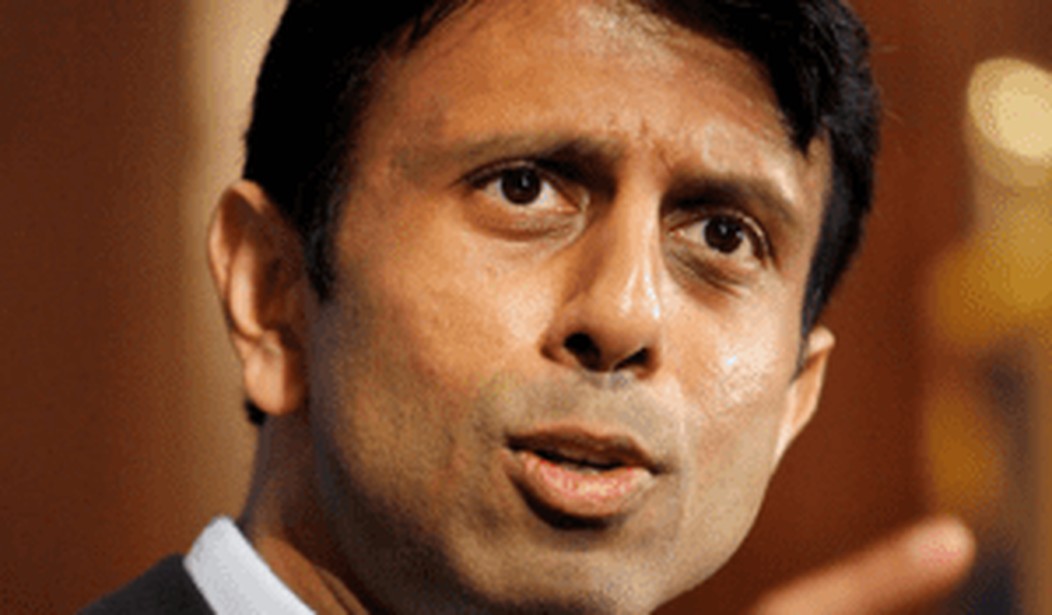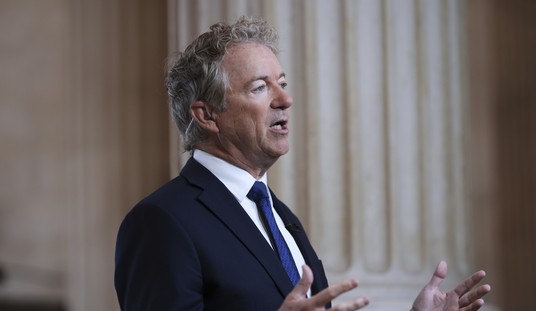At American pharmacies, a woman can get the controversial morning-after pill without a prescription but not the basic daily pill for issues ranging from birth control to painful periods.
One conservative Republican says it’s time to put contraception over the counter, in accordance with recent guidance from the American College of Obstetricians and Gynecologists, eliminating the mandate that has angered religious employers and taking the wind out of the Democrats’ sails on “birth-control politics.”
As a Roman Catholic, Louisiana Gov. Bobby Jindal understands why groups have filed suit against the Obama administration’s mandate to provide birth control without co-payment.
“As a conservative Republican, I believe that we have been stupid to let the Democrats demagogue the contraceptives issue and pretend, during debates about health-care insurance, that Republicans are somehow against birth control. It’s a disingenuous political argument they make,” Jindal wrote last week in the Wall Street Journal.
“As an unapologetic pro-life Republican, I also believe that every adult (18 years old and over) who wants contraception should be able to purchase it. But anyone who has a religious objection to contraception should not be forced by government health-care edicts to purchase it for others. And parents who believe, as I do, that their teenage children shouldn’t be involved with sex at all do not deserve ridicule,” he added.
Jindal contends that continuing the status quo would needlessly add to healthcare costs while lining the pockets of pharmaceutical companies.
“Contraception is a personal matter — the government shouldn’t be in the business of banning it or requiring a woman’s employer to keep tabs on her use of it. If an insurance company or those purchasing insurance want to cover birth control, they should be free to do so. If a consumer wants to buy birth control on her own, she should be free to do so,” he wrote.
But will the GOP sign on to this plan to defuse a combustible Dem talking point (see most of the 2012 DNC)?
It’s difficult to tell right now. Jindal’s op-ed was published mere hours before the Newtown, Conn., school shooting seized the headlines — and the attention of every lawmaker on Capitol Hill, turning the lame-duck narrative toward a gun control debate.
Liberals are split on Jindal’s call, simultaneously praising him for an enlightened viewpoint and accusing him of pandering to independent and Democratic voters while not-so-secretly wanting to torpedo the controversial ObamaCare mandate.
“Jindal understands that, like it or not, Democrats were quite successful at demagoguing Republicans this year over their opposition to the contraception mandate. And yet, the Republican base is still dead set against the idea that ‘religious institutions’ should be required to pay for contraceptives for their employees. How to square this circle?” wrote Kevin Drum at Mother Jones. “Easy: if contraceptives are sold over the counter, then the issue disappears.”
Putting the pill over the counter gives contraception advocates the universal access they wanted – more women would use it without a doctor’s visit being required. But some argue that access will be restricted if there’s any out-of-pocket expense – even if going over the counter knocks the price down as expected and is comparable to buying a box of Pepcid or Claritin. They also contend that other, more expensive contraceptives such as IUDs should still be covered through a government mandate, and that kids under 18 should have access to the pill, too. See Sandra Fluke for this train of thought.
“The idea here is that, oh, OK, now we have to pay for it again? To me that sounds like thanks but no thanks. We won the election, thanks,” Christina Page, author of How the Pro-Choice Movement Saved America, told the Daily Beast in reaction to Jindal’s op-ed.
One can’t imagine that opposing OTC contraceptives would look good to voters in either party who want convenience and savings and would cheer at the idea of not having to go through a doctor to get a pill they may have been using for years.
Not to say that opposition won’t come from Jindal’s side, though, in the form of social conservatives who just wouldn’t want wider access to birth control.
“Pro-lifers tend to believe that contraception is the root cause of many societal evils; divorce, rampant misuse of sexuality, sexually transmitted diseases, and abortion,” Austin Ruse wrote at First Things. “…Perhaps, though, the toothpaste will never get back in that tube.”
“Democrats have wrongly accused Republicans of being against birth control and against allowing people to use it. That’s hogwash,” Jindal wrote. “But Republicans do want to protect those who have religious beliefs that are opposed to contraception.”
Still, Jindal got chided by the church even though he made his personal views clear. “The Archdiocese of New Orleans disagrees with Governor Jindal’s stance on this issue, as the use of birth control and contraceptives are against Catholic Church teaching,” Sarah Comiskey McDonald, communications director for the Archdiocese of New Orleans, told EWTN News Dec. 14.
Jindal could open a new conversation in Washington, though, as there hasn’t been legislative attention to this sort of unfettered contraceptive access this Congress.
Sens. Joe Manchin (D-W.Va.) and Marco Rubio (R-Fla.) introduced the Religious Freedom Protection Act of 2012 — which has been stuck in committee since February — to address the key concern with Obama’s mandate. Sen. Daniel Akaka (D-Hawaii) introduced a bill that would expand contraception education in an effort to prevent teen pregnancy. Nothing’s come close to what Jindal proposes.
“Access and cost issues are common reasons why women either do not use contraception or have gaps in use. A potential way to improve contraceptive access and use, and possibly decrease unintended pregnancy rates, is to allow over-the-counter access to oral contraceptives (OCs),” the obstetricians and gynecologists’ group wrote in their committee opinion. “…Weighing the risks versus the benefits based on currently available data, OCs should be available over-the-counter. Women should self-screen for most contraindications to OCs using checklists.”
Women who take the pill would find such checklists very familiar: smoking increases risks, shouldn’t be taken with a history of blood clots, taking antibiotics decreases efficacy, etc.
Considering his experience as the head of Louisiana’s Department of Health and Hospitals (at age 24) and as an assistant secretary of Health and Human Services in the George W. Bush administration, Jindal has the credentials to back up his proposal.
He also likely has a 2016 ambition to move it forward.
Jindal’s race began with a shot at Mitt Romney soon after the election.
“What the president, president’s campaign did was focus on certain members of his base coalition, give them extraordinary financial gifts from the government, and then work very aggressively to turn them out to vote,” Romney said in a mea culpa call with top donors shortly after his loss.
The new chairman of the Republican Governors Association, at a press conference at the group’s meeting in Las Vegas, lashed out at the comments as “absolutely wrong.”
“One, we have got to stop dividing the American voters. We need to go after 100 percent of the votes, not 53 percent. We need to go after every single vote,” Jindal said.
And though his birth control message may be viewed cynically as simply an attempt to woo women voters, Jindal’s proposal serves a greater purpose of letting the GOP launch a key offensive on the Democrats’ “war on women” narrative while putting at ease those who object to having to pay for employees’ birth control.









Join the conversation as a VIP Member